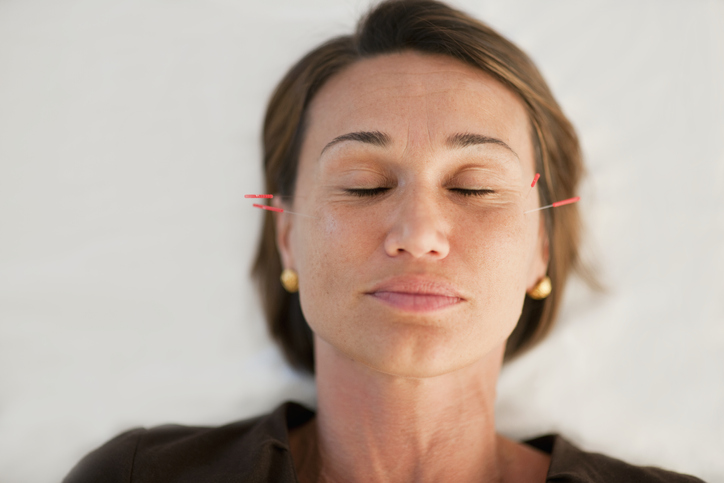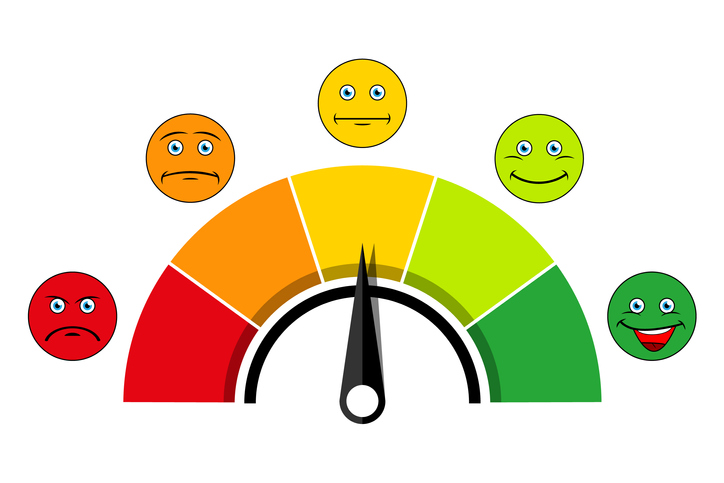Having Surgery? Consider Swapping Marijuana for Acupuncture to Manage the Pain

By Joy Stephenson-Laws, J.D, Founder
Research continues to suggest that medical marijuana and CBD are effective in treating chronic pain as well as a variety of other conditions. These include sleep disorders, anxiety, chemotherapy-induced nausea and even seizure disorders. You may not realize that some of your favorite stars, including Morgan Freeman, use marijuana for medical purposes. Freeman reportedly uses marijuana to manage his fibromyalgia.
Based on this, conventional wisdom would also suggest they would be effective for managing the acute pain associated with surgical procedures. This, in turn, could reduce the amount of potentially harmful, addictive and costly opioids required for successful post-operative pain management.
While this would indeed be ideal, recent studies suggest that cannabis may actually have the exact opposite effect when it comes to surgical and other acute pain. In fact, one study presented at the Anesthesiology 2020 conference indicates that not only might cannabis users require more anesthesia during surgery than non-users, they may also have increased pain afterward and need higher doses of opioids while in the hospital.
While researchers are not yet certain as to why this happens, they believe it may be similar to the increased tolerance to opioids that chronic users develop over time. This increased tolerance means they need more of the medication to achieve the same pain relief that was achieved initially with a lower dose.
The study showed that users of cannabis reported higher pain scores while in recovery and received some 58 percent more opioids per day while in the hospital. They also needed a greater amount of anesthesia during their surgeries. This is an important consideration since anesthesia can carry additional risks for certain groups of patients such as the elderly or those with chronic conditions. For these patients, the goal is to use the minimal amount of anesthesia during surgery as well as of opioid painkillers afterward.
Another study of patients with traumatic injuries, such as those resulting from a car accident, suggested that marijuana users experienced poorer pain control than non-users. In a group of patients with traumatic injuries, those who used marijuana even occasionally needed higher amounts of opioids than non-users. The study also reported that marijuana users had much higher pain scores during the time they were in the hospital when compared to non-users. In this case, occasional users had higher pain scores than chronic users.
Other studies dating back as far as 15 years reinforce that while marijuana may have benefits for treating chronic pain, it is not effective for the management of acute pain. In one, for example, a researcher conducted a double-blind study to see what effect marijuana would have on acute inflammatory pain. The result was that it did very little to reduce pain and actually increased the perception of pain in some subjects. Another study in Berlin used a cannabis plant extract to treat acute pain with little success. Some subjects in this study also experienced side effects such as nausea and sedation.

While cannabis may not be the best for treating acute surgical pain, it turns out that the 3,000-year-old Chinese practice of acupuncture may be. A recent report by the American Society of Anesthesiologists showed that veterans who had acupuncture treatment before surgery had less pain and needed fewer opioids to manage their pain. They also said they were more satisfied with their pain control than those not receiving acupuncture.
In case you’re not familiar with acupuncture, it involves inserting very thin needs at specific points of the body to relieve pain or treat other ailments. Proponents of the practice theorize that when an acupuncture needle is inserted into the body, the body releases endorphins that decrease sensations of pain and trigger the immune system to kick in.
In the specific study mentioned in the American Society of Anesthesiologists report, patients not receiving acupuncture needed almost three times as much of an opioid painkiller when compared to the group who received the treatment. Acupuncture patients also reported less pain and anxiety than did their counterparts. They also reported much less nausea and vomiting after surgery.
Acupuncture has also been found to be helpful in managing post-operative pain even when used after the surgery. According to the National Institutes of Health (NIH), a number of studies have shown it to be an effective complement to other pain management protocols. In one study, for example, in a group of patients receiving similar amounts of opioids, one group of patients also received acupuncture while the control group did not. Those receiving acupuncture reported less pain. The NIH went on to say that patients treated with acupuncture (or related techniques such as Trans Cutaneous Electrical Acupoint Stimulation (TEAS) used less opioids on the first day after surgery compared to those that did not.
In addition to acute pain management, acupuncture has also been found to be an effective treatment option for chronic pain, fibromyalgia, headaches, labor pain, menstrual cramps, cancer-related symptoms, like nausea and vomiting from chemotherapy, and even fertility.
How else can you be proactive about surgical pain?In addition to following your doctor’s instructions, there are things that you can do to better prepare your body for surgery to help achieve the best outcome possible. In fact, a study backed by the Journal of the American College of Surgeons found evidence which suggested that older adults who prepare for major surgeries by exercising, eating healthily and practicing techniques to reduce stress before going for the procedure “...have shorter hospital stays and are more likely to return to their own homes afterward rather than another facility, compared with similar patients who do not participate in preoperative rehabilitation...,” according to one report discussing the study.
This prep includes eating a nutrient-rich diet and avoiding a pro-inflammatory diet, practicing stress relieving activities such as meditation and yoga, making sure to get plenty of good quality sleep and quitting smoking if you do. Also be sure to get enough vitamin C since this nutrient has been shown to help with wound healing after surgery. I would also suggest considering cryotherapy, since its benefits include better sleep, a stronger immune system and less inflammation throughout the body - all things you want prior to surgery.
Of course, if you use cannabis and have a surgery coming up, be honest with your surgeon and let them know about your cannabis and other drug use. You may need to take a break from them to avoid any pain management complications during and after the surgery.
It is also important to take routine nutrient tests in order to make sure you are nutritionally balanced. If you are not, a competent healthcare professional can work with you on making the necessary dietary changes and recommend quality supplements if necessary.
Enjoy your healthy life!
Disclaimer: This article is not intended to provide medical advice. Please consult with your doctor or another competent healthcare practitioner to get specific medical advice for your situation.
The pH professional health care team includes recognized experts from a variety of health care and related disciplines, including physicians, attorneys, nutritionists, nurses and certified fitness instructors. This team also includes the members of the pH Medical Advisory Board, which constantly monitors all pH programs, products and services. To learn more about the pH Medical Advisory Board, click here.







